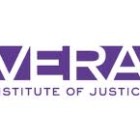
California Activists Calling for Changes to State’s Juvenile Justice System
|
Last month, California’s Center on Juvenile & Criminal Justice (CJCJ) released a policy brief recommending phased juvenile justice realignment beginning later this year. The release, entitled “Juvenile Justice Realignment in 2012,” was penned by Brian Heller de Leon, the organization’s Policy and Government Outreach Coordinator, and Selena Teji, J.D., the organization’s Communications Specialist and an occasional op-ed contributor to the JJIE. The CJCJ advocates a three-year program that would effectively abolish the state’s Division of Juvenile Facilities by 2015, reallocating funding to individual counties based on juvenile felony arrest rates. According to California’s Division of Juvenile Facilities, the state’s counties are saddled with an approximate annual cost of $125,000 per incarcerated youth, with state youth facility budgets topping out at $226 million annually. California Department of Corrections and Rehabilitation data from 2010 found that approximately 80 percent of juveniles within the state’s Division of Juvenile Facilities populations were likely to be re-arrested within three years of release.








